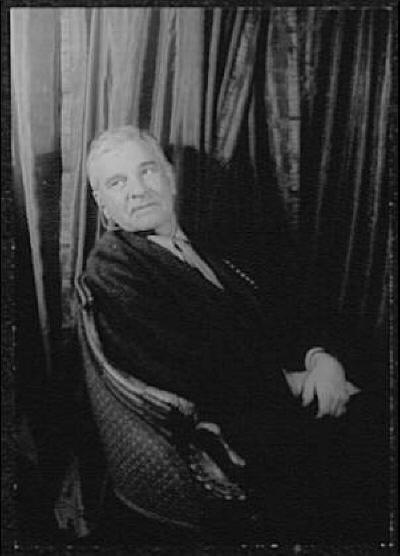

Queer Places:
Harvard University (Ivy League), 2 Kirkland St, Cambridge, MA 02138
North Cemetery
Sherman, Fairfield County, Connecticut, USA
 Malcolm Cowley (August 24, 1898 – March 27, 1989) was an American writer, editor, historian, poet, and literary critic.
Identified with the Lost Generation. His best known works include his first book of poetry, Blue Juniata (1929), his lyrical memoir, Exile's Return (1934; rev. 1951), as a chronicler and fellow traveller of the Lost Generation, and as an influential editor and talent scout at Viking Press.
He was part of the Literary
Ambulance Drivers during WWI.
Malcolm Cowley (August 24, 1898 – March 27, 1989) was an American writer, editor, historian, poet, and literary critic.
Identified with the Lost Generation. His best known works include his first book of poetry, Blue Juniata (1929), his lyrical memoir, Exile's Return (1934; rev. 1951), as a chronicler and fellow traveller of the Lost Generation, and as an influential editor and talent scout at Viking Press.
He was part of the Literary
Ambulance Drivers during WWI.
Cowley was born August 24, 1898, in Belsano, Cambria County, Pennsylvania, to William Cowley and Josephine Hutmacher.[2] He grew up in the East Liberty neighborhood of Pittsburgh, where his father, William, was a homeopathic doctor. Cowley attended Shakespeare Street elementary school and in 1915 graduated from Peabody High School, where his boyhood friend Kenneth Burke was also a student. Cowley's first published writing appeared in his high school newspaper.[2] He attended Harvard University, but his studies were interrupted when he joined the American Field Service during World War I to drive ambulances and munitions trucks for the French army. He returned to Harvard in 1919 and became editor of The Harvard Advocate. He graduated with a B.A. in 1920.[2]
Cowley was one of the many literary and artistic figures who migrated to Paris in the 1920s. He became one of the best-known chroniclers of the American expatriates in Europe, as he frequently spent time with writers like Ernest Hemingway, F. Scott Fitzgerald, John Dos Passos, Ezra Pound, Gertrude Stein, E. E. Cummings, Edmund Wilson, Erskine Caldwell, and others associated with American literary modernism. In Blue Juniata, Cowley described these Americans who travelled abroad during the postwar period as a "wandering, landless, uprooted generation";[3] similarly Hemingway, claiming to have taken the phrase from Gertrude Stein, called them the "lost generation".[4] This sense of uprootedness deeply affected Cowley's appreciation for the necessities of artistic freedom. It moreover informed his ideal of cosmopolitanism in contrast to the fervent nationalism(s) that had led to World War I.[5] Cowley recounted his experiences in Exile's Return, writing, "our whole training was involuntarily directed toward destroying whatever roots we had in the soil, toward eradicating our local and regional peculiarities, toward making us homeless citizens of the world".[6] While Cowley associated with many American writers in Europe, the sense of admiration was not always mutual. Hemingway removed direct reference to Cowley in a later version of The Snows of Kilimanjaro, replacing his name with the description, "that American poet with a pile of saucers in front of him and a stupid look on his potato face talking about the Dada movement".[7] John Dos Passos's private correspondence revealed the contempt he held for Cowley, but also the care writers took to hide their personal feelings in order to protect their careers once Cowley had become an editor of The New Republic.[7] Regardless, Exile's Return was one of the first autobiographical texts to foreground the American expatriate experience. Despite not selling well during its first publication, it established Cowley as one of the most trenchant emissaries of the Lost Generation. Literary historian Van Wyck Brooks described Exile's Return as "an irreplaceable literary record of the most dramatic period in American literary history."
As an editorial consultant to Viking Press, he pushed for the publication of Jack Kerouac's On the Road. Cowley's work anthologizing 28 F. Scott Fitzgerald's short stories and editing a reissue of Tender Is the Night, restructured based on Fitzgerald's notes, both in 1951, were key to reviving Fitzgerald's reputation as well, and his introduction to Sherwood Anderson's Winesburg, Ohio, written in the early 1960s, is said to have had a similar effect on Anderson's reputation.
Cowley married artist Peggy Baird; they were divorced in 1931. His second wife was Muriel Maurer. Together they had one son, Robert William Cowley, who is an editor and military historian. He died of a heart attack March 27, 1989.[1]
My published books: